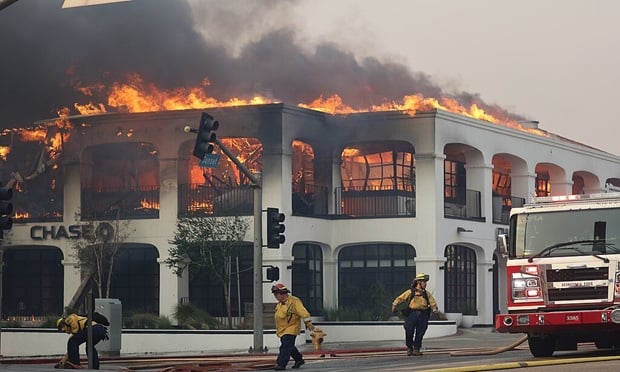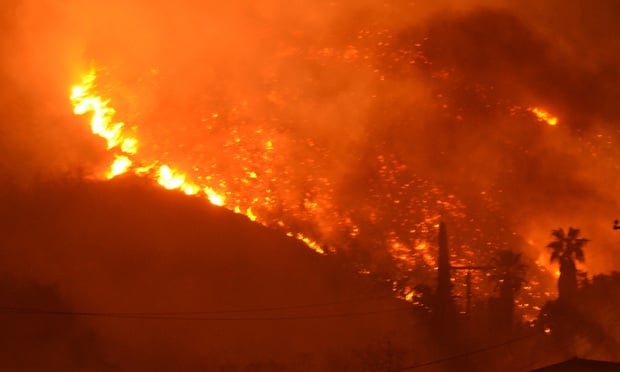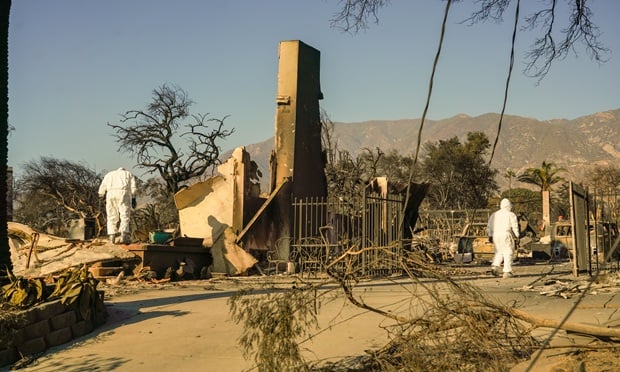Florida's state-run insurance organizations have sufficient resources to help affected cities and towns rebuild in the wake of Hurricane Irma, according to Moody's Investor Services.
That firm's Credit Outlook released Monday, Sept. 11, 2017, arrived days after Irma laid waste to several islands in the Caribbean. Irma was downgraded to from a Category 5 storm to Category 4 after it reached the Florida Keys on Sept. 10, 2017. But it still left destruction in its path across the Sunshine State.
Related: Insurers rally from Florida to Europe as Irma fears abate
Weather watchers predicted Hurricane Irma would be the strongest weather event in more than a decade, which caused Florida Governor Rick Scott to declare an early state of emergency and order statewide evacuations.
S&P Global Ratings also was quick to liken the potential damage caused by Hurricane Irma to that of Hurricane Harvey, which ravaged Texas just weeks beforehand.
"Strong capitalization will help mitigate the impact, but Irma will likely stress-test not only the re/insurers but also the staying power of third-party capital," said S&P Global credit analyst Hardeep Manku. "Regional pricing is also likely to harden, but the impact on global re/insurance pricing is debatable."
So far, Irma's reported death toll is 49 and climbing.
The damages tally so far is $30 million, according to the Center for Disaster Management and Risk Reduction Technology. This figure represents the storm's impact across the Caribbean and the southern U.S.
Related: A $150 billion misfire: How disaster modelers got Irma so wrong
Substantial financial resources
In its report, Moody's notes that both the Florida State Board of Administration Finance Corporation, which administers the Florida Hurricane Catastrophe Fund (FHCF), and the Citizens Property Insurance Corp., which was created by the Florida legislature in August 2002 as a not-for-profit, tax-exempt, government entity and covers personal and commercial properties, "have substantial finance resources to help the State of Florida and its municipalities rebuild from Hurricane Irma's damage," Moody's said in a press release.
Moody's reports that Citizens is currently Florida's third-largest property insurer, and covers many vulnerable coastal properties.
"Citizens has substantial resources to withstand damage claims from Hurricane Irma because of the growth in its claims-paying resources and the reduction in its outstanding policies during the past 11 years when no significant storms hit Florida," Moody's said. "Consequently, Citizens' has built up significant resources, and projects that its current claims-paying ability exceeds $13.3 billion."
Related: Hurricane Irma swamps Miami as $200 billion threat hits land [photos]
The credit reporting agency added: "Citizens estimates a probable maximum loss of $10.8 billion in a 1-in-250 year event. Given its $13.3 billion in resources, resources exceed Citizens' loss estimate by $2.5 billion. In the event that damage from Irma exceeds the 1-in-250-year loss threshold, Citizens has three additional revenue sources that provide significant claims-paying ability before resorting to additional bond issuance. However, significant growth in damage claims relative to available resources could result in future bond issuance and potential downward rating action."
Citizens declined to comment for this story.
Broad assessment base for both insurers
Fitch Ratings research also came to the conclusion that Citizens and the Florida Hurricane Catastrophe Fund (FHCF) are unlikely to be severely affected by Irma damage claims.
"Although Florida Citizens and the FHCF provide different insurance products (property insurance by Citizens and a form of reimbursement by the FHCF), both entities issue debt payable from emergency assessments on a large and diverse assessment base that includes virtually all insurance policies in the state," Fitch reported on Sept. 8, 2017. "The assessment base totaled approximately $44 billion as of December 2016. Fitch's 'AA' ratings on bonds issued for Citizens' Personal Lines Account/Commercial Lines account and Coastal Account and for the FHCF (bonds issued by the state Board of Administration) reflect the ability of each issuer to access this base and are unrelated to insurance operations."
State legislators created the Florida Hurricane Catastrophe Fund in 1993 after Hurricane Andrew, which is remembered as the fourth costliest tropical cyclone in U.S. history with a rebuilding price tag of $26.5 billion, according to the National Weather Service.
Hurricane Katrina was the most expensive of the Atlantic hurricanes to hit the U.S. with damages totaling roughly $108 billion.
At least some of Irma's financial impact will be felt in business losses. Planalytics, Inc., a Business Weather Intelligence® reporting firm based in Berwyn, Penn., projected in the days running up to Hurricane Irma that, based on the storm's strength and size, it could account for $1.45 billion in lost consumer/retail sector sales.
See also:
Want to continue reading?
Become a Free PropertyCasualty360 Digital Reader
Your access to unlimited PropertyCasualty360 content isn’t changing.
Once you are an ALM digital member, you’ll receive:
- Breaking insurance news and analysis, on-site and via our newsletters and custom alerts
- Weekly Insurance Speak podcast featuring exclusive interviews with industry leaders
- Educational webcasts, white papers, and ebooks from industry thought leaders
- Critical converage of the employee benefits and financial advisory markets on our other ALM sites, BenefitsPRO and ThinkAdvisor
Already have an account? Sign In Now
© 2025 ALM Global, LLC, All Rights Reserved. Request academic re-use from www.copyright.com. All other uses, submit a request to [email protected]. For more information visit Asset & Logo Licensing.








